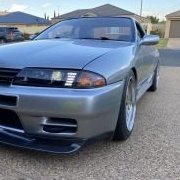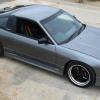Power Drop In Rb25det?
Announcements
-
Similar Content
-
Latest Posts
-
You're probably right about that one. Thanks for your suggestions, I hope I don't need a new 3rd brake light. Although wiring issues might arguably be worse. Right now I'm in the midst of a turbo removal because of my oil leak, other problems are going to have to wait for now.
-
Hell, I know that much. So far I just put it off as "part of the deal".
-
I removed the head expecting to find broken and bent valves, but instead found number 1 at TDC and cylinder 2 at the top of its cylinder stroke as well, thought that was weird and proceeded to push cylinder 2 back down until it either bottomed out on its other piston half or the conrod either way we found the issue kind of, now to remove the engine and see how the block looks, hopefully its just the top off a piston.
-
By robbo_rb180 · Posted
A little more work this week. Fitted astra power steering pump in the boot with a lowe fabrication bracket. Gave the pump a good clean, fitted Anderson plug and high pressure fitting. With the intercooler being flipped under rad support factory headlights weren't going to work. Ordered a set of origin battle lights, they arrived so got them test fitted. Will require some fiddling to fit nice but was an easy quick option for now. And today we pulled out the manual Rb gearbox and test fitted a ZF 8HP50. It will fit with some casting tabs cut off and small tap of the tunnel with a hammer. Pick up the adapter plate Wednesday so hopefully all bolted in Friday and measure for tailshaft which will be a 2 piece. Been doing a lot of ecu, pdm and tcu loom design so when comes to wiring it in a few weeks will all go smoothly.
-








Recommended Posts
Create an account or sign in to comment
You need to be a member in order to leave a comment
Create an account
Sign up for a new account in our community. It's easy!
Register a new accountSign in
Already have an account? Sign in here.
Sign In Now